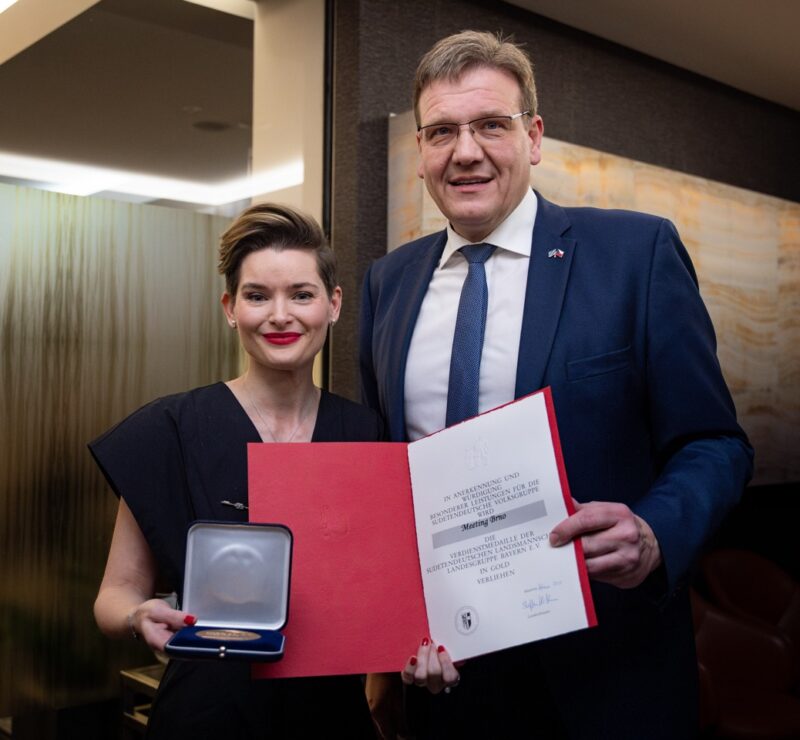Pain continues to affect our lives, even long after its original cause has faded. Stories, encounters, and wounds have no expiration date. When suffering runs deep, it leaves imprints on our faces, bodies, and nervous systems. And ultimately, even on our genes – the ones that, in a sense, carry our being into the future, if we have descendants. Generation after generation, we face tasks our ancestors could not resolve.
Pain is often tied to a longing for justice. The idea of restorative justice for those who endure painful injustice may offer some comfort – but it is not a lasting solution, not a transformation of wounds into scars. The yearning for justice permeates our prayers, which we bring before God again and again. And yet we wrestle with the agonizing question of a just God. But doesn’t faith mean precisely that: enduring God’s unfathomability, as Karl Rahner writes?
Faith builds resilience
Faith in the meaning of life – religious faith – fosters a form of resilience that does not come at the cost of emotional numbness. Religion is not meant to be the opiate of the people but rather a source of strength to carry the full weight of our personal stories. Stories we help shape, but also those we inherit – with their blooming beauty and painful mystery.
Faith and spirituality are like fine threads woven into the tapestry of our destiny. Faith may hang by a thread, and yet it can be what saves our life. The spiritual dimension we nurture, cultivate, and feed can shine like a light in the darkness that often descends upon us without warning.
Past stories shape our present
The traumas we grapple with have many origins, but they always strike where we are most sensitive: in our core needs – space to live, physical, emotional, and spiritual nourishment, support, protection, and safe boundaries. We are especially vulnerable in childhood. We depend on those around us to fulfill our needs – literally or symbolically. This helps form the inner belief that the world can be a livable place.
When our needs are met, we internalize the idea that happiness is possible even in an imperfect world – one that is not paradise, but still worth living in. This inner process unfolds to varying degrees. No one is invulnerable, even after an idyllic childhood. Our consciousness, subconscious, and unconscious are so intricately intertwined that the invisible threads of past stories still affect us today. Each day, we encounter triggers that touch our inner tensions. And sometimes, we face tasks that overwhelm us.
Trauma doesn’t spare adults. Life constantly presents us with new challenges. It is understandable that we try to avoid them, but that doesn’t help us grow. Our being requires the fulfillment of our basic needs. At the same time, we must integrate our internal polarities: being tender and strong, gentle and assertive.
To live a full life, we need awareness. We must be willing to face problems rather than avoid them – to look truth in the eye. We must build our capacity for action – and patience. And we must learn to live with our uniqueness: to honor it, but also to recognize that all people have equal worth. There is no reason to place ourselves above others.
Faith has the power to heal trauma
Our spiritual life guides us on this path. It offers us inspiring stories – from the Bible or other sacred texts. Pastors and spiritual leaders are called to be guides, shepherds, and caretakers of souls. They speak of salvation and God’s mercy. They accompany us on the path to humanity, authenticity, and spiritual richness. And this richness includes not only highs and ecstasies but also abysses, darkness, and pain. Those in spiritual service are not exempt from these challenges.
Our world of faith, our spiritual home across different churches, can touch and heal trauma – within a safe framework. We share our stories not only with spiritual leaders but also within the community. We carry pain together and offer it to God in prayer, on behalf of one another.
Yet trauma can also occur within the church. I don’t mean the harmless boredom of childhood Sundays, offset by a promised visit to the bakery. I mean the pain caused by abuse of power in places where we should feel absolute safety. This trauma affects all of us. It is not “just a few victims” – it is the suffering of the entire church, across centuries and continents. We are all vulnerable: children, women, men, young and old. Human beings are inherently fragile. And it is precisely this fragility that makes us receptive to God’s presence and capable of witnessing miracles.
We stand before a symbolic mountain – a mountain of pain, suffering, and trauma. It is up to all of us to recognize when the time has come to climb higher, to look around, to make the effort. To accompany and be accompanied. It is time to look into the valley and take the next step. To transform suffering into strength and wisdom, as Viktor Frankl says. And this does not have to be a solitary journey. We walk this path together – to experience joy and blessing in this imperfect world.










